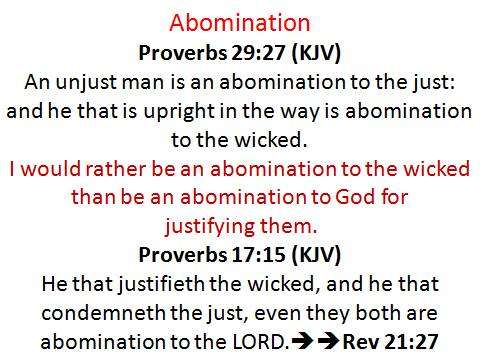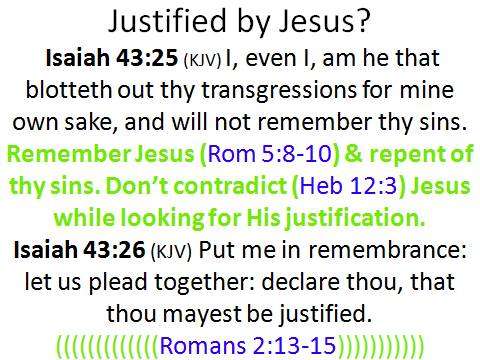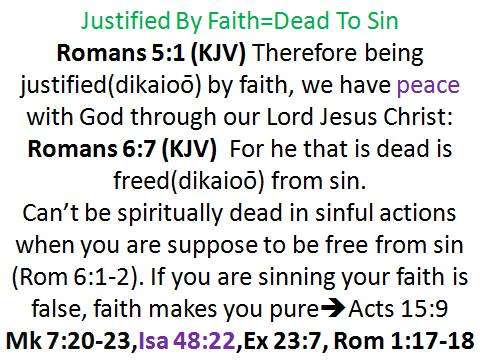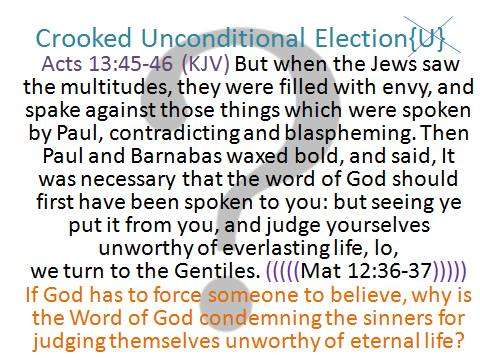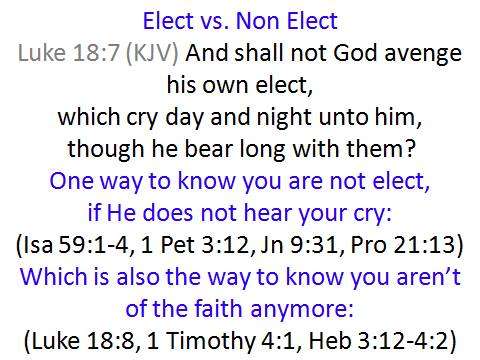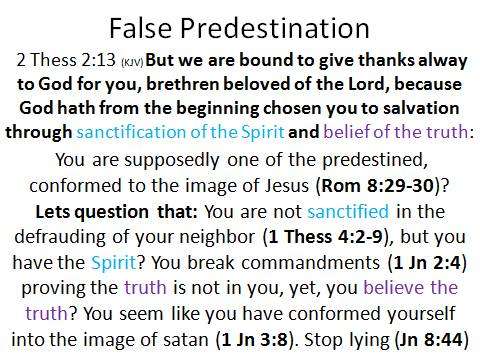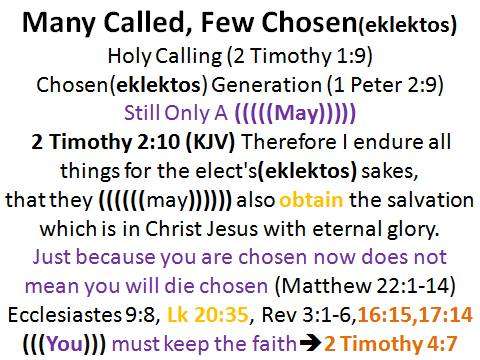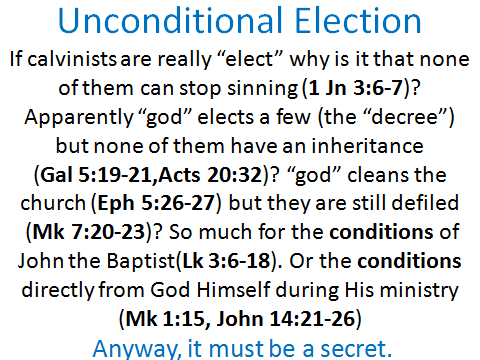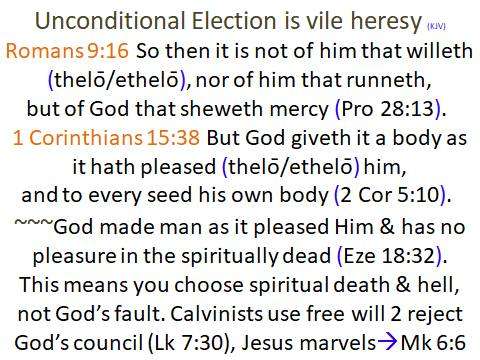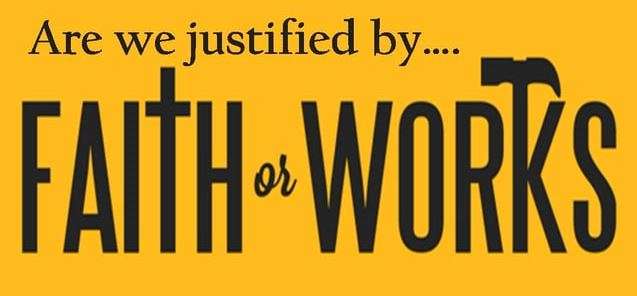
Grace? Justification by Faith – Works – Election? Romans 3:19-31 Explained
AUDIO TEACHINGS
What is Biblical Grace? Justification by Faith – Romans 3:19-31 Explained
The moral law of God is God’s own standard of righteousness. “Whosoever committeth sin transgresseth also the law: for sin is the transgression of the law.” (1 John 3:4) The law shows what is straight. To break God’s law is to go out of the right way; and in so doing to offend and rebel against God. All who have sinned have therefore become crooked and enemies of God. Justice demands their condemnation, for they are unjust because of their sin. No one who has sinned can justly point to their record of keeping the law and say that they have earned salvation and don’t deserve condemnation. That’s how we can understand:
“Now we know that what things soever the law saith, it saith to them who are under the law: that every mouth may be stopped, and all the world may become guilty before God. Therefore by the deeds of the law there shall no flesh be justified in his sight: for by the law is the knowledge of sin.” (Romans 3:19-20)
So without the great love and of mercy of God seen in Christ’s suffering and sacrifice when He made atonement for our sins on the cross (Jesus is the One and only perfect Sin Offering – the Unblemished Lamb) we’d be hopelessly God’s enemies forever, lost, and guaranteed to go to hell. But because of Christ’s death and resurrection we can legally have our record washed clean before God and be restored to a right with standing with Him (i.e. justified- see 1 Peter 3:18-19) To believe on Christ necessarily means acknowledging our guilt and pleading for mercy. We must relate to God based on grace, not justice. We must renounce boasting before God and any idea that He’d owe us salvation as a debt- for we have no rightful ground to claim that since we have sinned.
“But now the righteousness of God without the law is manifested, being witnessed by the law and the prophets; Even the righteousness of God which is by faith of Jesus Christ unto all and upon all them that believe: for there is no difference: For all have sinned, and come short of the glory of God; Being justified freely by his grace through the redemption that is in Christ Jesus: Whom God hath set forth to be a propitiation through faith in his blood, to declare his righteousness for the remission of sins that are past, through the forbearance of God; To declare, I say, at this time his righteousness: that he might be just, and the justifier of him which believeth in Jesus. Where is boasting then? It is excluded. By what law? of works? Nay: but by the law of faith.” (Romans 3:21-27)
But what is not usually emphasized in the evangelical world is that pleading guilty before God and relying on God’s mercy in Christ won’t secure our pardon and justification unless we turn to the Lord with our whole hearts. This means we must end our enmity against Him by submitting to His government and forsaking our sins. The gospel is about establishing God’ government and authority, not mocking it (Galatians 6:7-8, Acts 28:31, Romans 16:25-27, etc, etc, etc). Grace doesn’t negate God’s law, but rather establishes it. Jesus is Lord as well as Savior. Those who won’t honestly, totally, and unconditionally forsake their sins and submit to Jesus’ Lordship mock God and can’t have an interest in Christ’s atonement.
“Therefore we conclude that a man is justified by faith without the deeds of the law. Is he the God of the Jews only? is he not also of the Gentiles? Yes, of the Gentiles also: Seeing it is one God, which shall justify the circumcision by faith, and uncircumcision through faith. Do we then make void the law through faith? God forbid: yea, we establish the law.” (Roman 3:28-31)
Anyone who would dispute that the law being established by faith means that we must forsake our sins and submit to Jesus’ Lordship is rebuked frequently in this very same Book of Romans. We are shortly after instructed in Romans 6: 1″What shall we say then? Shall we continue in sin, that grace may abound? 2 God forbid. How shall we, that are dead to sin, live any longer therein? 3 Know ye not, that so many of us as were baptized into Jesus Christ were baptized into his death? 4 Therefore we are buried with him by baptism into death: that like as Christ was raised up from the dead by the glory of the Father, even so we also should walk in newness of life.” (Romans 6:1-4)
So those who make the record of their works their confidence before God are actually fighting the law which testifies that they are crooked and condemned. We see in Romans that if we can’t claim to have never sinned (as no one can honestly claim), then we need to have the faith of Abraham (this type of living faith is unconditionally obedient to God through Jesus Christ and establishes the law) in order to be right with God. God imputes righteousness to those with genuine faith in Christ by wiping their record clean by the blood of Christ which He shed to purchase our redemption. Those who won’t forsake their sins are fighting the law (and thus fighting God Himself) and can’t be justified, even if they are pleading Jesus’ blood as their confidence before God. For the law not only points out man’s rebellion and crookedness, but also testifies that rebellion and crookedness must end for one to be right with God; and that we therefore must return to walk in the straight path (i.e. the narrow way to life- which is unconditional obedience to God’s commandments). This is why in the wisdom of God the message of repentance, which is the message of John the Baptist, is sent to prepare the way for Jesus. “3 And he (John the Baptist) came into all the country about Jordan, preaching the baptism of repentance for the remission of sins; 4 As it is written in the book of the words of Esaias the prophet, saying, The voice of one crying in the wilderness, Prepare ye the way of the Lord, make his paths straight.” (Luke 3:3-4- keep reading Luke 3 for further proof that repentance means what we are speaking of here). And is not the main reason people justify themselves as they are and hope to be saved by the record of their works because they want to explain away their need for genuine repentance and to continue living as they are in their sins? So no one can turn to God and be justified who does not do so by pleading for mercy through God’s mean of redemption in Christ and submitting to God’s government in repentance (as Jesus is Lord who upholds the law of God). Those who genuinely turn to the Lord as He directed us to obey the gospel message and are God’s children who have passed from death to life (see also Luke 24:46-47).
These verses in Romans are talking about Gentiles being “elected” or offered salvation which was God’s plan form the beginning! He knew BEFORE the creation of the world (foreknowledge) that GENTILES would also be offered salvation. You need to rightly divide the word of God. Before the world began – Προ χρονων αιωνιων. Before the Mosaic dispensation took place, God purposed the salvation of the Gentiles by Christ Jesus; and the Mosaic dispensation was intended only as the introducer of the Gospel. The whole of the preceding discourse will show that every thing here is CONDITIONAL, as far as it relates to the ultimate salvation of any person professing the Gospel of Christ; for the promises are made to CHARACTER, and NOT TO PERSONS, as some have most injudiciously affirmed. The apostle insists upon a CHARACTER all along from the beginning of the chapter. Rom 8:1 “There is no condemnation to them that are in Christ Jesus, who walk not after the flesh, but after the Spirit.” Rom 8:13 “If ye live after the flesh, ye shall die”, etc.
The absolute necessity of holiness to salvation is the very subject of his discourse; this necessity he positively affirms, and establishes by the most solid arguments. At the very entrance of his argument here, he takes care to settle the connection between our calling and our love and obedience to God, on purpose to prevent that mistake into which so many have fallen, through their great inattention to the scope of his reasoning. Rom_8:28 “All things work together for good” – To whom? To Them that Love God: to them that are the called according to his purpose. To them that love God, because they are called according to his purpose; for those only who love God can reap any benefit by this predestination, vocation, or any other instance of God’s favor. The Lord doesn’t want to leave people guessing as to whether they’ve been made right with Him when they are truly right with Him. He distinguishes those who are His children. He bears witness by His Holy Spirit that He accepts their repentance and faith in Christ as genuine- so they know He is their Father and that they can (as they continue in His covenant) approach Him boldly as their Father through the One mediator between man and God, Jesus Christ. He encourages them by this witness that they are on the right path and that they are now partakers of His grand plan of redemption and salvation. This is what is meant by the biblical term “election.”
“The God of our fathers raised up Jesus, whom ye slew and hanged on a tree. Him hath God exalted with his right hand to be a Prince and a Savior, for to give repentance to Israel, and forgiveness of sins. And we are his witnesses of these things; and so is also the Holy Ghost, whom God hath given to them that obey him.” (Acts 5:30-32)
“And this is his commandment, That we should believe on the name of his Son Jesus Christ, and love one another, as he gave us commandment. And he that keepeth his commandments dwelleth in him, and he in him. And hereby we know that he abideth in us, by the Spirit which he hath given us.” (1 John 3:23-24)
“For as many as are led by the Spirit of God, they are the sons of God. For ye have not received the spirit of bondage again to fear; but ye have received the Spirit of adoption, whereby we cry, Abba, Father. The Spirit itself beareth witness with our spirit, that we are the children of God: And if children, then heirs; heirs of God, and joint-heirs with Christ; if so be that we suffer with him, that we may be also glorified together.” (Romans 8:14-17)
The word (and variations of the word) that is translated “elect” in Scripture could also be translated “chosen” or “selected.” There is a sense in which Christ is elect/chosen, in that He is the One whom God has borne witness to as the Captain and King of God’s people; and the Chief Cornerstone of His Church. Those who would be counted as the Lord’s people must obey Christ’s gospel. In the following passage we see these things put together. Christ is elected/chosen as the Chief Cornerstone of God’s house; and those who obey Him are elected/chosen to be built upon Him as living stones. The words translated “chosen” and elect” in the passage below are variations of the same Greek word which is translated differently in English.
1 Peter 2:1-10: “Wherefore laying aside all malice, and all guile, and hypocrisies, and envies, and all evil speakings, 2 As newborn babes, desire the sincere milk of the word, that ye may grow thereby: 3 If so be ye have tasted that the Lord is gracious. 4 To whom coming, as unto a living stone, disallowed indeed of men, but chosen of God, and precious, 5 Ye also, as lively stones, are built up a spiritual house, an holy priesthood, to offer up spiritual sacrifices, acceptable to God by Jesus Christ. 6 Wherefore also it is contained in the scripture, Behold, I lay in Sion a chief corner stone, elect, precious: and he that believeth on him shall not be confounded. 7 Unto you therefore which believe he is precious: but unto them which be disobedient, the stone which the builders disallowed, the same is made the head of the corner, 8 And a stone of stumbling, and a rock of offence, even to them which stumble at the word, being disobedient: whereunto also they were appointed. 9 But ye are a chosen generation, a royal priesthood, an holy nation, a peculiar people; that ye should shew forth the praises of him who hath called you out of darkness into his marvellous light;10 Which in time past were not a people, but are now the people of God: which had not obtained mercy, but now have obtained mercy.”
Our obedience to Christ is clearly the issue regarding whether we are elect in Him; and whether we are partakers of His salvation or enemies under His judgment. And we also see here that those who have not obtained mercy can be counted among God’s people and have their lost condition reversed when they obey the gospel. Election by God is clearly conditional based upon one’s obedient faith in Christ.And we see also by the admonitions in Peter’s 2nd epistle the need for the elect to continue and mature in the faith in order to stay elect. “Wherefore the rather, brethren, give diligence to make your calling and election sure: for if ye do these things, ye shall never fall: For so an entrance shall be ministered unto you abundantly into the everlasting kingdom of our Lord and Savior Jesus Christ.” (2 Peter 1:10-11)
We shortly afterwards are given a description of how the elect can have their election reversed. “For if after they have escaped the pollutions of the world through the knowledge of the Lord and Savior Jesus Christ, they are again entangled therein, and overcome, the latter end is worse with them than the beginning. For it had been better for them not to have known the way of righteousness, than, after they have known it, to turn from the holy commandment delivered unto them. But it is happened unto them according to the true proverb, The dog is turned to his own vomit again; and the sow that was washed to her wallowing in the mire.” (2 Peter 2:20-22)
You are only “elected” if you obey and it’s continually conditional. Being elected and not being elected can both be reversed and is seen in Romans chapter 11 as the Apostle Paul described the condition of the lost Jews; and warned believing Christians that to follow them in them in their disobedience would mean losing their election. He would also make it clear that the unbelieving Jews would become elect if they should submit to their Messiah.
Romans 11:19-23: “Thou wilt say then, The branches were broken off, that I might be grafted in. 20 Well; because of unbelief they were broken off, and thou standest by faith. Be not highminded, but fear: 21 For if God spared not the natural branches, take heed lest he also spare not thee. 22 Behold therefore the goodness and severity of God: on them which fell, severity; but toward thee, goodness, if thou continue in his goodness: otherwise thou also shalt be cut off. 23 And they also, if they abide not still in unbelief, shall be grafted in: for God is able to graft them in again.”
The following Scriptures show a variation of the same Greek Word that is sometimes translated as “elect” and sometimes “chosen.” They illustrate further that the meaning of election is very simple, straightforward, and reasonable- rather than some complicated, hard to grasp theological concept. The bold words in the two passages below could have just as easily been translated to read “elected.”
“41 And Jesus answered and said unto her, Martha, Martha, thou art careful and troubled about many things: 42 But one thing is needful: and Mary hath CHOSEN that good part, which shall not be taken away from her.” (Luke 10:41-42)” Then pleased it the apostles and elders with the whole church, to send CHOSEN men of their own company to Antioch with Paul and Barnabas; namely, Judas surnamed Barsabas and Silas, chief men among the brethren” (Acts 15:22)


